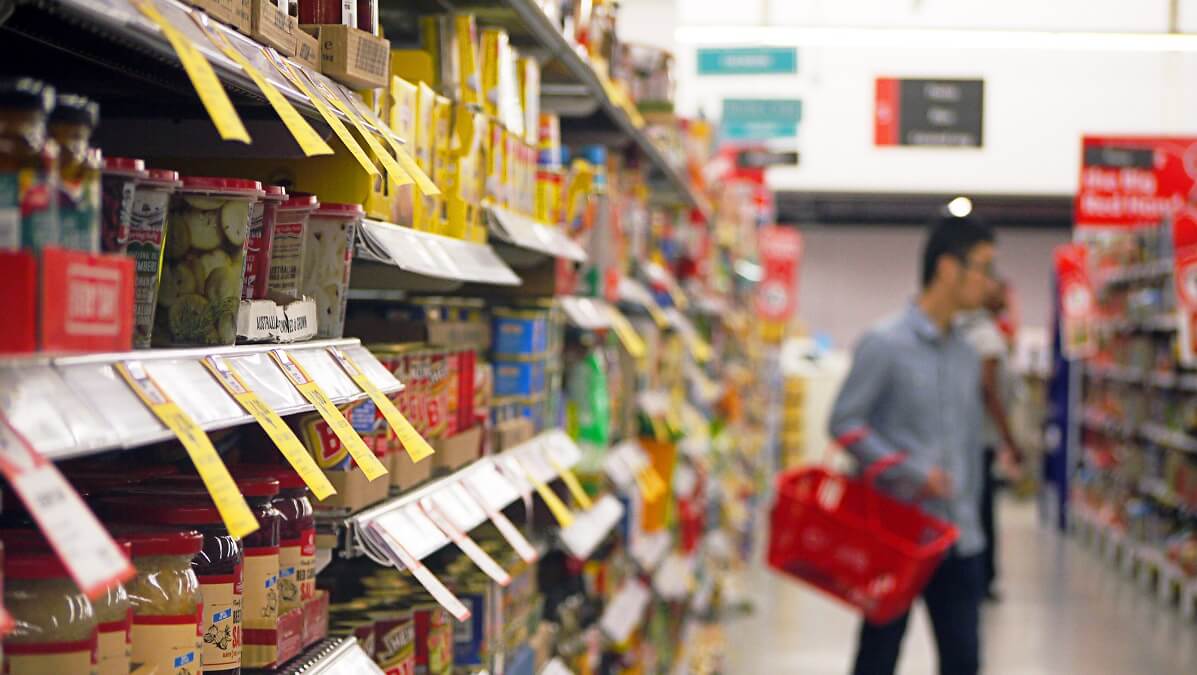You are at least five times more likely to buy a supermarket item that’s on sale, rather than full price, research has found. And that can be bad for your health.
We’ve all been there, standing in the supermarket aisle surveying the options. The decision comes down to two brands. Both are almost identical, but one has a bright yellow sale sticker.
Obviously, you’re going to choose that one, right? It makes sense as who would willingly pay more for almost the same thing? You’re a savvy shopper, you think to yourself, and you’re totally in control of your shopping decisions.
Except maybe that control is an illusion, and you’re at the mercy of marketing more often than you think.
Analysis by Guardian Australia of data from the Australian Bureau of Statistics (ABS) has found shoppers are at least five times more likely, and in some cases up to 70 times more likely, to choose an item that’s on sale. And the supermarkets are taking full advantage of that, to the detriment of your health.
The data also showed supermarkets are twice as likely to discount and promote unhealthy food options over healthy ones, so you end up buying junk food at a much higher rate. And the worst part is, psychology makes you feel good about it.
Why do supermarkets discount unhealthy food options?
Professor of public health Adrian Cameron says supermarket discounts and promotional decisions are dictated by agreements with the manufacturers.
The manufacturers with the biggest marketing budgets have the biggest influence over what the supermarkets choose to discount and promote. And because a lot of unhealthy food options come from big multinationals (think leading confectionary and soft drink brands), those unhealthy items end up front and centre.
And it seems that we’re powerless against our own psychology. Aussies love a bargain, and that tends to overpower everything else.
“Australians tend to do their shopping based on what’s on special,” Prof. Cameron says.
“A lot of items put on price promotions are things that you can expand sales on. They call those discretionary purchases, or impulse buys – things like chips and other junk food.”
The ABS data, collected from scanner records, showed that on average, an item sells five times as fast when it is discounted, and in the case of one olive oil brand up to 70 times as fast.
This effect was exaggerated even further in times of high inflation.
Can anything be done about it?
At the moment, no. But supermarket pricing tactics, including discounts and promotions, are the subject of a parliamentary inquiry, initiated in December last year.
The inquiry is accepting submissions up until 2 February and is due to deliver its final report in May.
While it remains to be seen what the report recommends, the Australian Competition and Consumer Commission (ACCC) is considering taking matters into its own hands.
It has warned the supermarket giants it could launch legal action against them over a number of issues, including their discount practices.
ACCC chair Gina Cass-Gottlieb told the Australian Financial Review the regulator is “carefully looking” at potential litigation some time in the next 12 months.
She said the ACCC “would not hesitate” to take legal action against the largest offenders.
“We think it is very important that is well understood,” she said.
The move has the backing of the federal government. Prime Minister Anthony Albanese told reporters last week that he was open to granting the ACCC more power over supermarket pricing if it wanted it.
“If the ACCC asks for more powers, my government’s up for giving it to them,” he said.
“My government is concerned about the price of what consumers pay at Coles and Woolies and other supermarkets. We have a practical option of mandating the grocery code of conduct, for example. And that’s something that [we] will consider.”
How often do you buy items on special at the supermarket? Are you choosing unhealthier options as a result? Let us know in the comments section below.
Also read: Pressure builds on supermarkets as farmers claim they’re being paid 1978 prices

